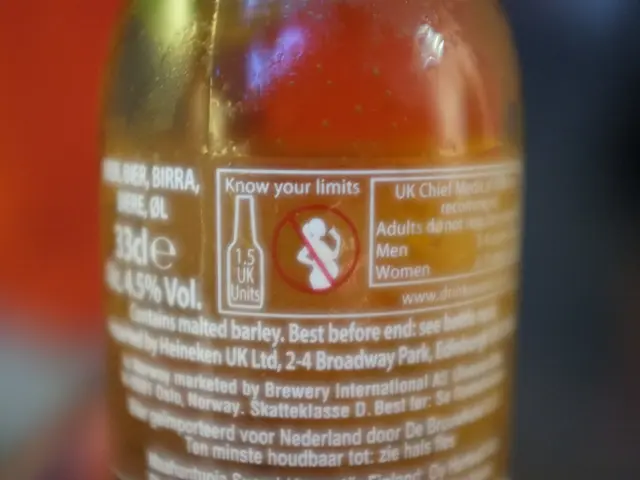Web of Woes: The Soaring Online Obsession Among Teenagers
Unprecedented rise in internet addiction among adolescents reported
While the internet is intended to connect us, excessive use can lead to psychological turmoil, especially among the younger generation. A child protection organization, KidsRights, has raised a red flag about a global surge in mental health issues among kids and teens, primarily linked to the unbridled spread of social media.
The mental health chaos among our adolescents has reached a boiling point, amplified by the rampant expansion of social media platforms like Instagram and TikTok, according to KidsRights. One in every seven youngsters aged between 10 and 19 is grappling with psychological issues, as reported by KidsRights in collaboration with Erasmus University in Rotterdam. Marc Dullaert, the chairman of KidsRights, called this year's report a "wake-up call" we can no longer ignore.
The report cites studies suggesting a link between excessive social media and internet use and an increase in suicide attempts among young people. Although suicides among the 15 to 19 age group stand officially at six per 100,000, Dullaert labels this figure as the proverbial tip of the iceberg, arguing that many suicides go unreported due to social stigma.
KidsRights annual assessment of children's rights reveals that Europe is the region most at risk for 13-year-olds to fall prey to problematic online network use (13%). The spread of internet addiction among 15-year-olds in Europe, at 39%, is alarmingly high.
Despite the alarming statistics, KidsRights disapproves of blanket internet bans for minors, claiming such actions as infringing on their civil and political rights. Alternatively, the organization advocates for comprehensive global research, better education, and improved training for psychologists to tackle this issue head-on.
Politicians are taking notice, too. Last week, EU digital ministers held discussions on the demand by certain European countries to ban platforms like TikTok, Instagram, and YouTube for children. France, Greece, and Denmark propose to only allow these platforms from the age of 15, with stringent user age verification.
While age restrictions apply theoretically, they are seldom enforced in reality. Social media platforms like TikTok, Instagram, Snapchat, and X allow access from the age of 13, while YouTube and Tumblr permit usage from the age of 16. However, age verification is rarely enforced, as users can simply enter a fabricated birthdate during registration.
Several countries and organizations worldwide are working tirelessly to address the surge in internet addiction among teenagers. Legislation and regulations, enhanced privacy safeguards, safe platform designs, education, and support systems are among the efforts being made to promote healthy digital practices among teenagers.
Parents and guardians can play a crucial role in setting boundaries, monitoring usage, encouraging offline activities, and maintaining open lines of communication with their children. Social media platforms are also urged to implement robust age verification, design platforms that deter addictive behaviors, and partner with educational institutions to promote digital literacy.
It's time for concerted action to prioritize the mental health and well-being of our youngsters in the digital age. The digital revolution should not come at the expense of our children's happiness.
- The rising mental health concerns among youth are largely attributed to excess internet use and the prevalence of social media, according to KidsRights and Erasmus University.
- The European region faces a significant risk of internet addiction among 13-year-olds (13%) and 15-year-olds (39%), as revealed in KidsRights' annual assessment of children's rights.
- To combat the surge in teen internet addiction and promote healthier digital practices, efforts are being made on a global scale, including legislation, enhanced privacy safeguards, education, and stronger age verification systems on social media platforms.








